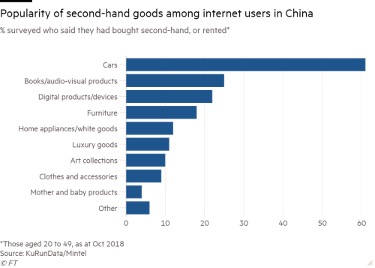Sustainability in the fashion industry
China Paradigm interviewed two fashion industry experts, Kanchan Porta-Panjabi and Kate Padget-Koh, founder of Fashionable Futures. They explain to us how their Hong Kong-based fashion consultancy is bringing sustainability in the fashion industry and awaken the fashion consciousness of Chinese consumers and beyond.
From learning to advising: The story of a Hong Kong-based fashion consultancy
Kanchan Porta-Panjabi and Kate Padget-Koh were both destined to work in the fashion industry. After respectively a Fashion Knitwear Design diploma at the University of Nottingham and a Master’s degree in Business and Fashion at the University of Westminster, Kate and Kanchan both started their professional career in the fashion industry.
After several rewarding experiences for famous brands such as Puma or Li Fung, in 2019 Kate finally decided to start her own fashion company and founded Fashionable futures, a Hong Kong-based consultancy. She quickly has been joined in this adventure by Kanchan who runs for six years her own women’s wear fashion company.

After over 20 years working in the fashion industry with important responsibilities, Kate was well equipped and acquired an undeniable knowledge about fashion trends and practices in the industry. Willing to take the plunge, she set up a Hong Kong-based fashion consultancy, Fashionable Futures, but still keeping in mind that she wanted to bring something new to the industry. Aware of the environmental challenge we are facing, Kate is deeply convinced that the fashion sector also needs to adapt. Therefore, she decided to focus on bringing sustainability in the fashion industry by advising companies from this field.
“I think if you create a brand, there really has to be certain values that you want to educate the world about.”
A very short time later, Kanchan, feeling concerned by these big issues and challenges, joined Kate. After only one year, their Hong Kong-based fashion consultancy already assists several fashion businesses in shifting to a more sustainable way of working, in order to thrive in this competitive market.
Bring sustainability in the fashion industry, a needed way to prosper
Before talking about the reasons why is it important to bring sustainability in the fashion industry, it is necessary to properly explain what hides behind this pretty complex word. “Sustainability focuses on meeting the needs of the present without compromising the ability of future generations” but what about the fashion industry? With Fashionable Futures, Kate and Kanchan gave a pretty clear definition.
“To us, sustainability in the fashion industry is really about making a product that is not harming the environment. So, whether it be producing new clothes or upcycling or reusing or remaking, it’s about how are you affecting the planet while you are doing that, and the planet in different areas.”

Indeed, with the growing purchasing power of the middle-class in some countries and the always more consumerist society, the fashion industry is sometimes quoted as one of the less sustainable and eco-friendly industries. People are now buying more clothes than ever, and sometimes do not even wear it once. Meanwhile, manufacturing processes are damaging the environment in many ways, by spending tones of water or using non-eco-friendly materials and chemicals.
But at the same time, awareness is rising among people and a lot of them are now asking for more sustainability in the fashion industry. Manufacturers and fashion brands are, in a way, forced to adapt to survive on the market as the disruption of the industry now seems to be unavoidable.
China focus: The disruption of China’s fashion industry
Like many different industries, fashion is not spared by evolution and change. While new technologies and modern ways of consumption appear among customers, the fashion industry tries to adapt in order to fit with consumers’ needs and ideology. Of course, in our nowadays global world, no country is spared and the disruption of China’s fashion industry is also moving forward.
“We work with large brands who want specific projects done around sustainability, innovation and, strategy. And they may be, are probably in the midst of a transition. We are all very aware of the disruption of China’s fashion industry, and the fashion retail business. So, we work with them to really look at how they can fast track any transformation they are currently engaged in.”
Alongside the possible changes due to political and economic purpose, mainly induced by the current trade war, the disruption of China’s fashion industry is led by three essential reasons.
Firstly, the implication of technologies already disrupted the industry as most of the fashion brands integrated commerce functionalities into social media, for instance. Moreover, the data sciences allow both brands and manufacturers to analyze a more precise way the needs or the way of consumption of customers.
Secondly, the disruption of China’s fashion industry also comes from trust issues. Indeed, people are paying always more attention to what they buy, where does it come from, what is it made of, etc. Transparency is an answer that fashion brands manufacturers need to give to convince customers. By the way, this could be enabled thanks to new technologies. For example, blockchain could be an important tool to enhance the traceability of fashion products.
Nevertheless, what might be the most important reason for the fashion industry’s disruption is rising awareness among Chinese consumers regarding social and environmental purposes. It cannot be denied that Chinese consumers now feel more concerned about climate or social related issues. Thus, to keep growing, the fashion industry imperatively has to adapt and address the needs of a more aware and knowledgeable audience by being more eco-friendly and responsible.
Fashion consciousness of Chinese consumers: bright future or ephemeral trend?
As global warming and climate change are becoming major issues, people from all over the world progressively tend to change their consumption habits. In China, the fashion industry is also concerned by this shift and the fashion consciousness of Chinese consumers is now rising.
According to a recent report from Tmall’s fashion division, the fashion consciousness of Chinese consumers is growing and sustainability will be one of the most important criteria for Chinese shoppers’ choices.
The younger generations have, of course, the highest level of concern for sustainable fashion consumption. As younger consumers encourage more environmentally friendly fashion shopping, a 2018 report from Yili Group revealed that 81.8% of respondents under the age of 20 years old are favorable to more sustainable consumption in China.
Among the main trends, the fashion rental market and second-hand market are probably the most promising, and some China-based APPs such as YCloset and MSParis perfectly leverage from it.
Yet, the fashion consciousness of Chinese consumers also has a hidden face. A large part of the population is still not engaged in that transformation and as recent research from the Chinese fashion media Luxe.co detailed it, “21 percent of shoppers don’t know where to find sustainable fashion, and another 19 percent do not understand what sustainability means.”
Furthermore, the popularity of fashion renting and second-hand clothes is not that high. In 2018, less than 10% of Chinese internet users aged from 20 to 49 years old said they had bought second-hand or rental clothes, and nothing tells us if it is because of a sustainability purpose or simply a financial one.

Sustainable fashion probably has a bright future to come, but the population mindset still needs to move forward and be educated about sustainability and the current fashion industry’s pollution topics.
Listen to this episode here:










